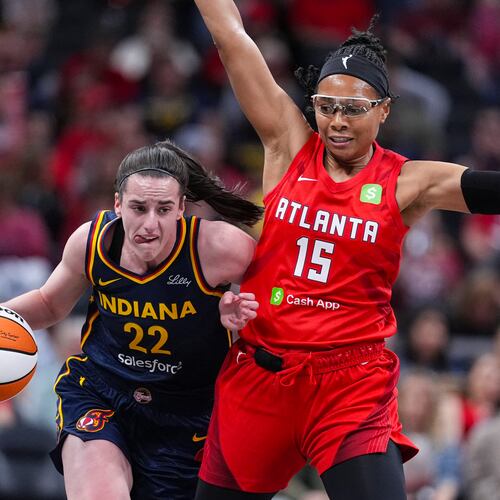News that the Braves planned to move to a new suburban ballpark in 2017 came as a complete surprise Monday to just about everyone except a tight circle of Cobb County politicos and an even smaller group of high-ranking team officials.
“I think your first reaction is ‘wow, really?’” said former Braves pitching great Tom Glavine, who now serves as a special assistant to team president John Schuerholz. “And I guess from an aesthetic standpoint, it still feels like Turner Field is relatively new. So it’s a little bit of a surprise. But I’m sure people that are there every day have things that they would like to change and fix and it sounds like the more you hear, the Braves didn’t necessarily have as much control over a lot of that stuff as they would have wanted.”
The Braves believe that moving to a ballpark in the geographic center of their fan base will boost attendance and revenues from suites, concessions, particularly important for a team with a mid-level payroll and long-term local TV contract that’s far less lucrative than new deals struck by other major league teams.
“It will introduce new revenue streams we didn’t have in the past,” Braves general manager Frank Wren said, who didn’t expect it to affect payroll or contract decisions this offseason. “I don’t think it changes anything in the near future. As we get closer to moving into the stadium, I think we’ll see some adjustments.
“Our ownership has always demonstrated that as our revenues increase they will pour it all back in the product.”
Turner Field was constructed next to the Braves’ former home, Atlanta-Fulton County Stadium, where Braves legend Hank Aaron broke Babe Ruth’s career home-run record when Aaron hit No. 715 in 1974. When the old stadium was demolished, the spot where Aaron made history was preserved.
In 2017, the Braves plan to leave that behind and play 12 miles north at a highway intersection in the ‘burbs.
Aaron, 79, now a Braves senior vice president, said in an emailed statement: “I’m proud of the Braves and their rich legacy, and look forward to the next chapter of our great organization.”
Former Braves third baseman Chipper Jones, who played at The Ted from when it opened in 1997 until he retired after the 2013 season said he too was surprised by the move. “I have a lot of memories at The Ted and it will be a sad day when the Braves move out. But some of the reasons to move make sense. I guess the next generation of Braves superstars will have a brand new home to make their own batch of unforgettable memories.”
Braves pitcher Kris Medlen didn’t know anything about the planned move before a reporter texted him Monday morning.
“I had no idea what you were talking about, then I just read about it,” Medlen replied via text. “I’ll give you a quote about it in a couple of years if they still want me here. Hahaha.” (He also made clear he hoped to stay with the Braves.)
The Braves say Turner Field, which is just 17 years old – built for the 1996 Olympics, retro fit for baseball in 1997 — needs at least $150 million of infrastructure work, none of which would significantly enhance the “fan experience.”
“It starts to make sense when you start looking at the lack of control you have maybe, and then when you start looking at how much money you’re going to have to spend to update something,” Glavine said. “At the end of the day you think, ‘Well, for a little bit more we could have our own and build it the way we want and have everything.’”
One big reason the Braves sought to relocate were transportation problems – i.e., no MARTA stop — they believe have hindered attendance at Turner Field, which is on the periphery of downtown Atlanta but isn’t convenient to restaurants, bars or other attractions that fans could enjoy before or after games. The team doesn’t own the stadium or land around it.
“I think the pretty standard complaints about Turner Field were getting in and out of there,” Glavine said, “and that there was nothing to do around there. I think that they certainly have the potential to address both of those issues, and I’m sure they’ll put a lot of time into trying to make that happen.”
About the Author
Keep Reading
The Latest
Featured

